Our team
The Disability Justice Project is brought to you by the following individuals:
Board of Advisors

Beatrice Leong
Beatrice Leong lives and works in Kuala Lumpur, Malaysia, a country she both loves and resists, a place that has shaped her politics, her solitude, and her fight. She is a late-diagnosed autistic woman, a documentary filmmaker, and a gender-disability activist whose work lives at the uneasy intersection of silence and speech, policy and memory. After a lifetime of psychiatric misdiagnosis — once institutionalised and coerced into electroconvulsive treatment — she now works to dismantle the very systems that once erased her. Through AIDA — the Autism Inclusiveness Direct Action Group, which she founded — she carves out space for women and girls with disabilities to not only be seen but to lead. Her lens is always tilted slightly towards justice: in narrative, in budgeting, in the way impact is measured and felt. Her work spans grassroots organizing to global policy spaces — always returning to the same question: who gets to survive, and what stories must we tell to live?
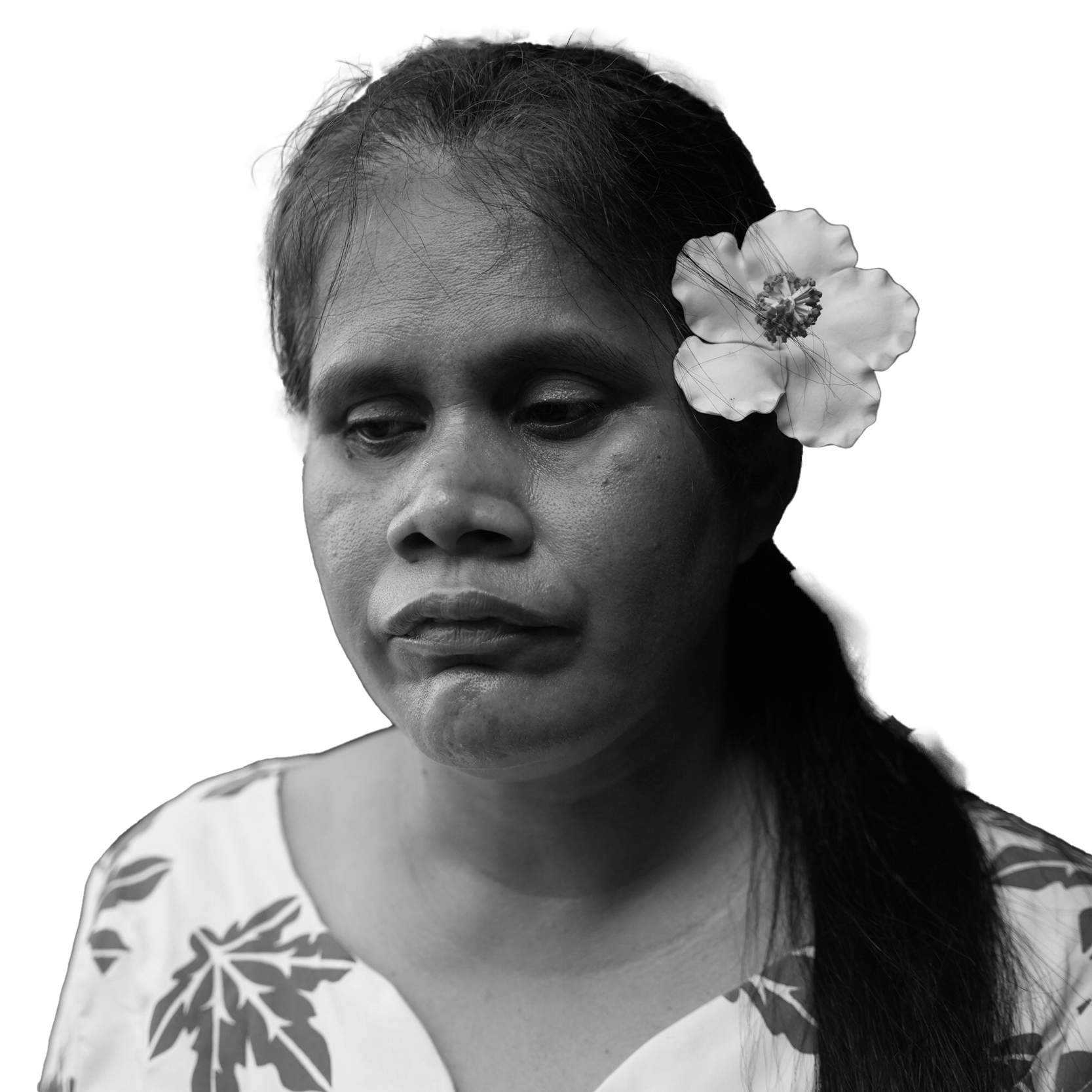
Faaolo Utumapu-Utailesolo
Faaolo Utumapu-Utailesolo is a blind filmmaker from Samoa and a regular contributor to the Disability Justice Project. Her film Dramatic Waves of Change, about a disabled activist in Kiribati using theater to confront climate change, was a finalist in the Focus on Ability International Short Film Festival. Utumapu-Utailesolo is the program officer for the Pacific Island Countries for the Disability Rights Fund and the Disability Rights Advocacy Fund. She works closely with the program team and serves as a liaison between the funds and grantees in the Pacific Island Countries.
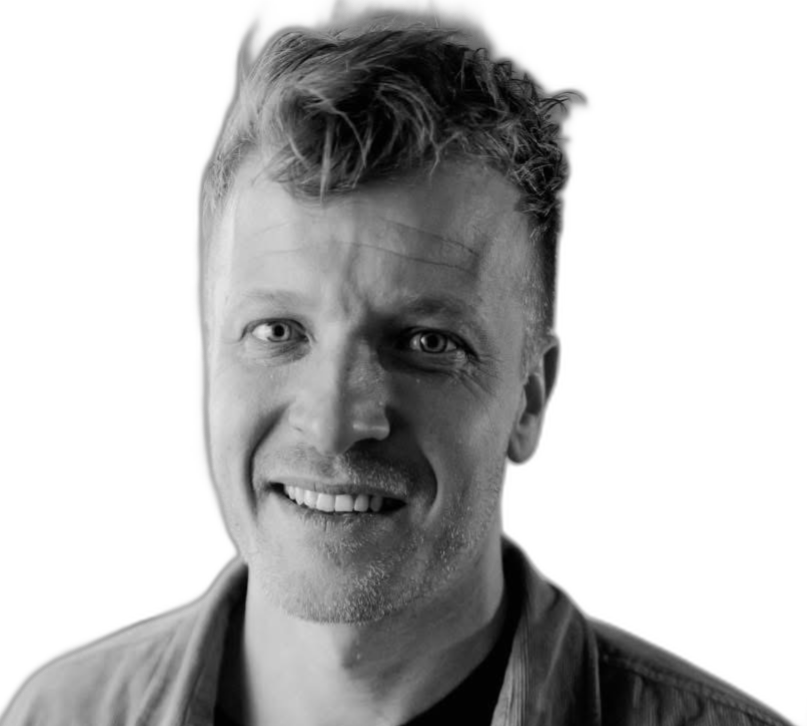
Alexander Hauerslev Jensen
Alexander Hauerslev Jensen is driven by a passion for leveraging technology to foster positive change, particularly in the realm of accessibility and inclusion. He holds a firm belief in equal opportunity for all, recognizing technology’s potential to dismantle barriers and support individuals with disabilities. His focus lies in exploring emerging technologies to develop innovative solutions that cater to the specific needs of underserved communities. Ultimately, he aims to contribute to a world where technology promotes equity, accessibility, and an enhanced quality of life for everyone.
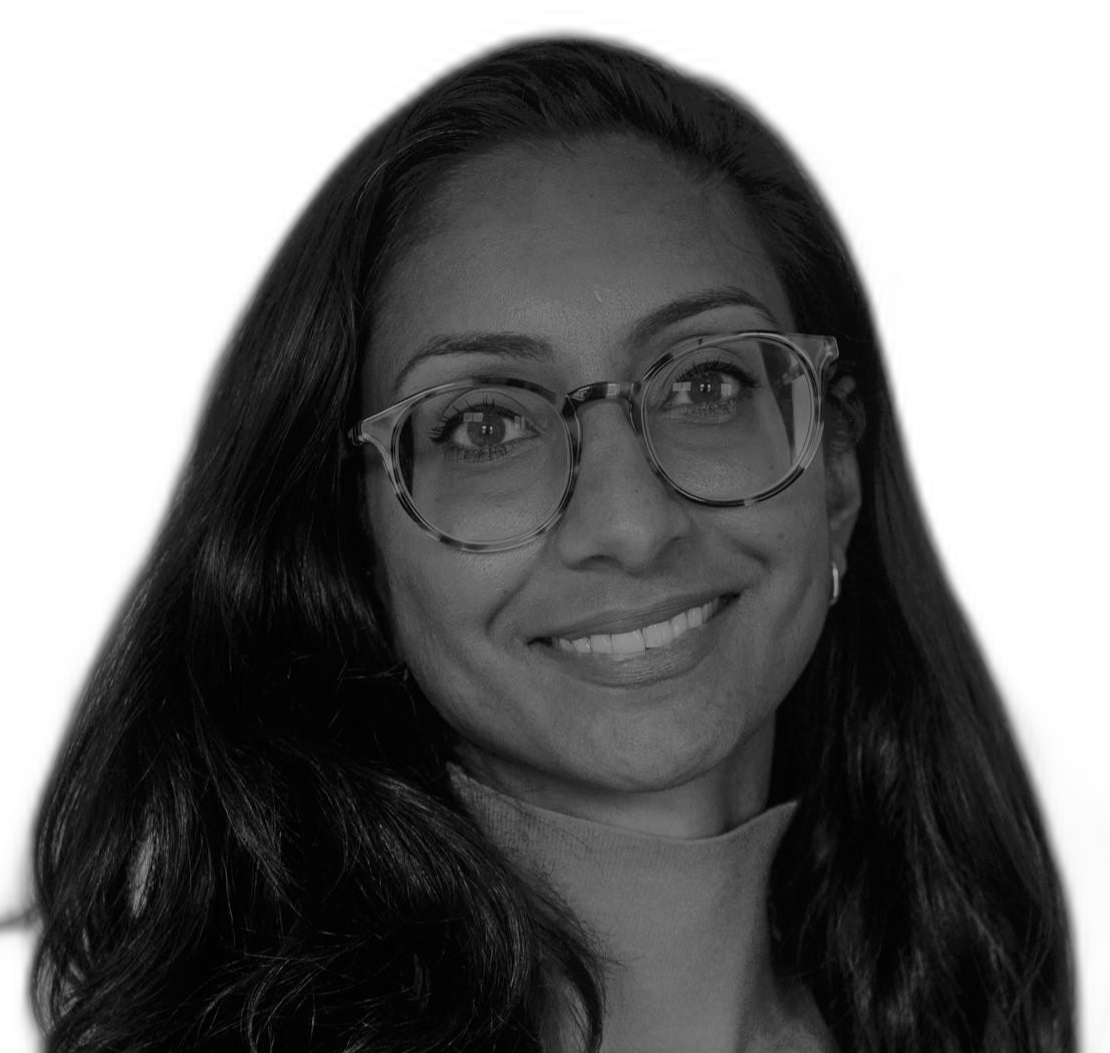
Sabina Basi
Sabina Basi describes herself as a feminist and activist who is driven by an ancestral commitment to social justice. She is a senior leader, strategist and fundraiser-cum-resource activist with over a decade experience of cultivating strategic partnerships, developing fundraising strategies and leading teams. Basi currently works as Director of Funding, Communications and Transformative Partnerships at ADD International where her purpose is to engage with the philanthropic system to create a just and reparative flow of resources to disability justice activists in the Majority World. Before joining ADD International, she worked at Restless Development and Womankind Worldwide.
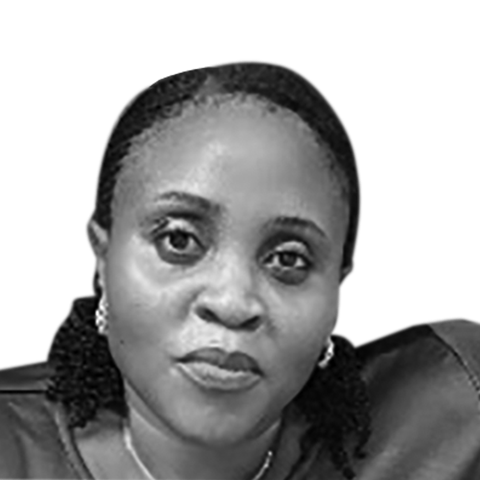
Oluwabukolami Omolara Badmus
Oluwabukolami Omolara Badmus is a disability rights activist, a Disability Justice Project Fellow, and a feminist based in Lagos, Nigeria. She is the project officer and former financial secretary for the Lionheart Ability Leaders International Foundation (LALIF). Badmus is also an educator, teaching at a government/public high school.
Since 2019, part of LALIF’s major organizational focus has been on people with Usher syndrome, a genetic condition that can lead to DeafBlindness. After realizing how little Nigerian citizens know about Usher syndrome and those who live with it, Badmus is now actively involved in educating people, from government officials to educators, about this condition.
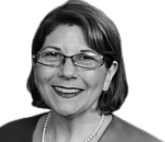
Marcie Roth
Marcie Roth is the executive director and chief executive officer at World Institute on Disability.
Recently named by Forbes Magazine to their inaugural Fifty Over 50 Impact List, and by Womens’ eNews as one of their 21 Leaders for the 21st Century, Marcie has served in executive leadership roles for disability advocacy and public policy organizations since 1995, leading coalitions committed to operationalizing accessibility and inclusion as intersectional imperatives for equity, diversity and global social justice.
In the immediate aftermath of the 9/11 terrorist attacks, Marcie turned her advocacy towards improving emergency preparedness and disaster outcomes for people with disabilities, building accessible disaster-resilient communities and disability inclusive climate justice initiatives.
Appointed by President Obama to the U.S Department of Homeland Security – Federal Emergency Management Agency (FEMA) from 2009 to 2017, she served as Senior Advisor to the FEMA Administrator, establishing and directing the Office of Disability Integration and Coordination. Marcie represented the U.S. government internationally as an expert on whole community inclusive global disaster risk reduction from 2012- 2017 and has served as a leader throughout the development and implementation of the United Nations Sendai Framework for Disaster Risk Reduction 2015-2030.
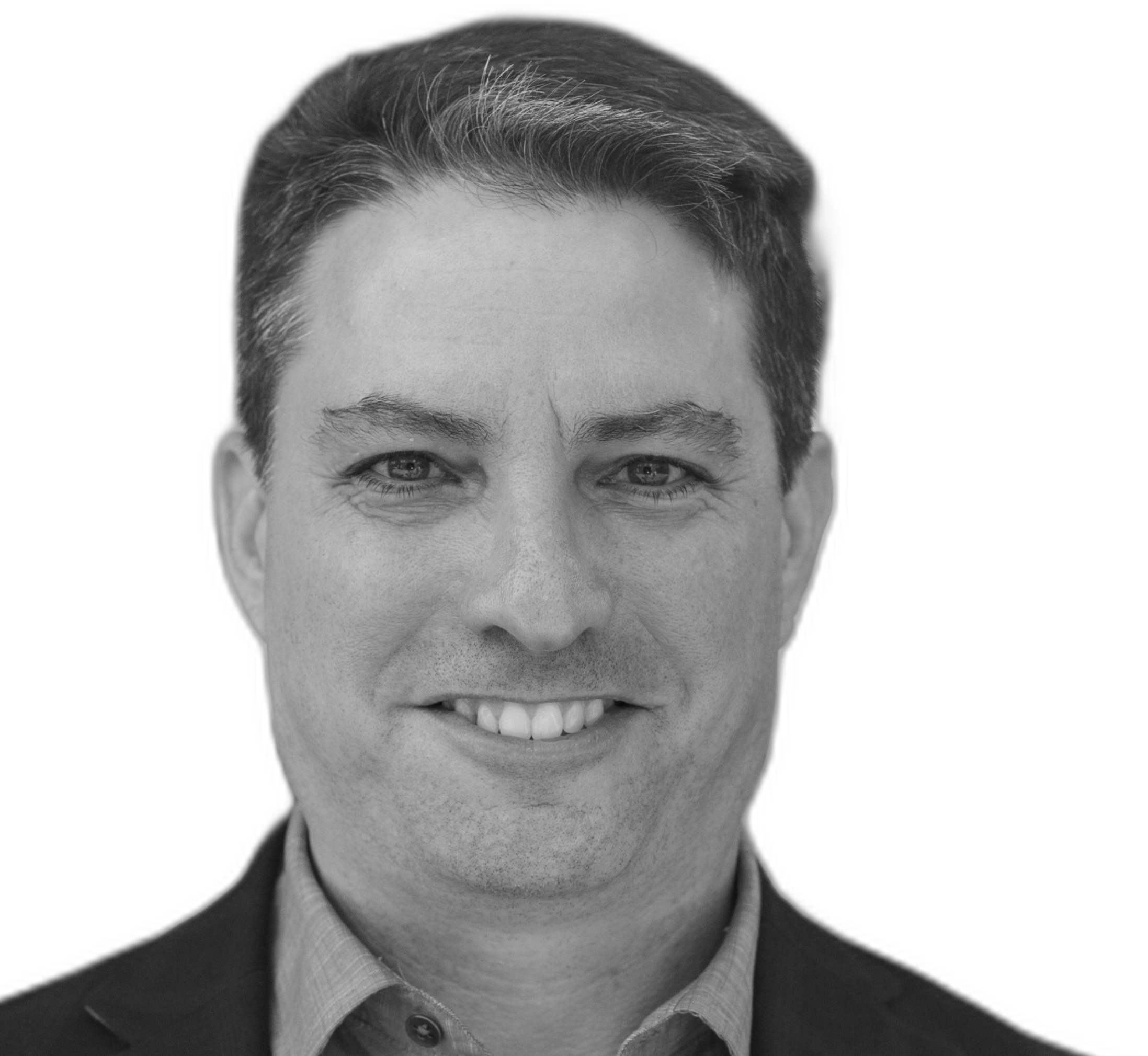
Mike Tancredi
Mike Tancredi is a mission-driven professional with extensive background in marketing and communications. He has fundraised for medical research, environmental, and community nonprofits, and is passionate about effective messaging, campaigns, and community-building to drive support and impacts. Tancredi currently serves as a senior marketing manager for Energy Solutions, supporting renewable energy and electrification client programs to help mitigate climate change and reduce greenhouse gas production.
Staff
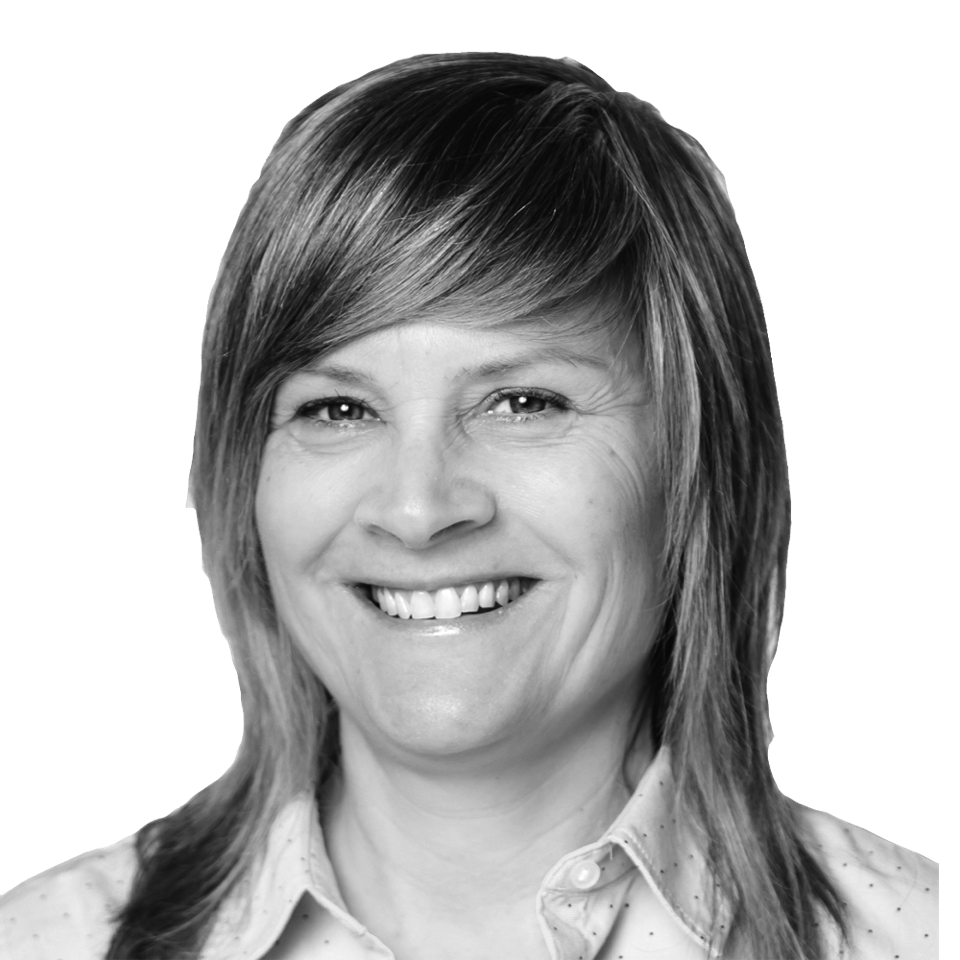
Jody Santos Founding Executive Director/Editor-in-Chief
A human rights filmmaker, Jody Santos (she/her) has traveled to over 30 countries across five continents, documenting everything from the trafficking of girls in Nepal to the widespread and often abusive practice of institutionalizing children with disabilities in the U.S. and other countries. Her documentaries have aired on public television and networks like the Discovery Channel, and her reporting has been featured on New England Public Radio and in publications such as Mad in America. Across all platforms, Santos focuses on telling stories that are often overlooked or go unreported.
Santos is the recipient of American Women in Radio & Television’s Gracie Allen Award, and she was nominated for an Emmy for a special report on black-market guns airing on NBC Boston. Her documentary, Rising Tides, Raising Voices, has screened at festivals worldwide, earning accolades such as Best International Film at The Together! 2024 Disability Film Festival organized by the UK Disabled People’s Council. In 2024, the film was featured on International Day of Persons with Disabilities at UNESCO’s inaugural Festival of Short Films on Disability Inclusion in Paris and at a screening hosted by the Food and Agriculture Organization of the UN (FAO) in Rome.
Santos is an associate teaching professor at Northeastern University’s School of Journalism. She is the author of Daring to Feel: Violence, the News Media, and Their Emotions published by Rowman & Littlefield’s Lexington Books.
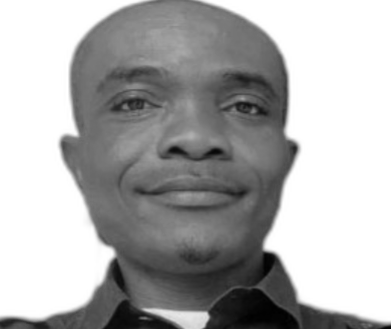
Alexander Ogheneruemu Contributing Writer
Alexander Ogheneruemu is a Deaf writer, special educator, and disability advocate. A team member with the Voice for the Deaf Foundation (VDF), a Deaf-centric non-profit, his works are driven by a passion for changes that lead to better conditions for disabled and marginalized people.
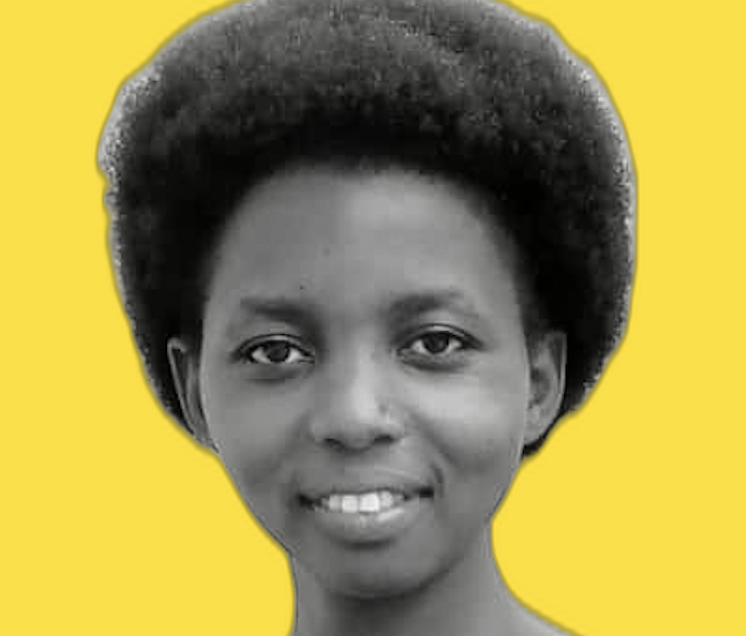
Francine Uwayisaba Contributing Writer
Francine Uwayisaba is a field officer at Rwanda Union of Little People (RULP) and is in charge of the organization’s communications. She writes grants, manages RULP’s social media, and composes articles and weekly updates for the website. She earned her bachelor’s degree in journalism and communication from the University of Rwanda and has been a freelance contributor to the Disability Justice Project since the fall of 2022. She is trained in basic sign language; disability inclusion in HIV interventions; disability, sexuality, and rights; and gender balancing. She also works as an actor in dubbing movies from international languages to Kinyarwanda.
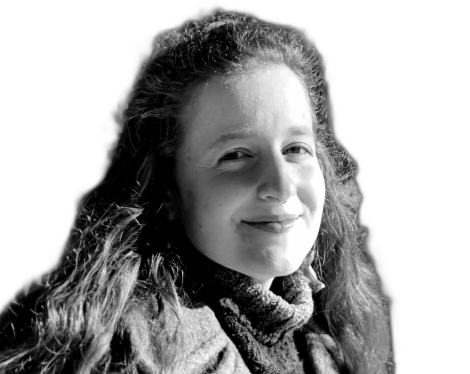
Grace Rountree Development Associate
Grace Rountree (she/they) is a community organizer, human rights advocate, and visual artist. Grace’s background as a paralegal specializing in humanitarian immigration law informs her commitment to building transnational solidarity and fighting for progressive change at the intersection of disability justice and migrant rights issues. They are passionate about centering accessibility in social movement spaces and are experienced in organizing around human rights issues, particularly related to U.S. imperialism in the Global South. As audience engagement coordinator with the Disability Justice Project, she will create content and develop strategy across social media platforms.
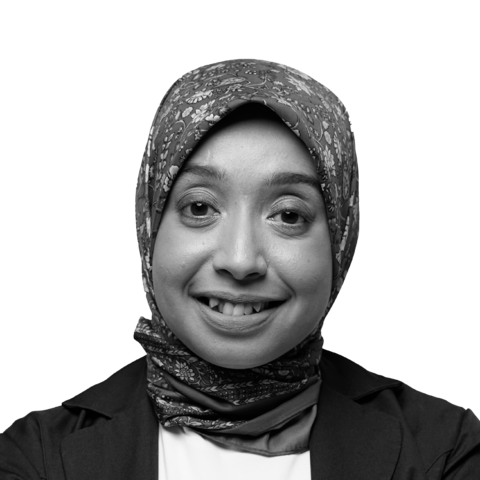
Sakdiyah Ma’ruf Interpreter
Sakdiyah Ma’ruf is Indonesia’s first Muslim female stand-up comic. Her comedy promotes dialogue, peace, and gender equality. She has performed in Indonesia, Australia, Sweden, Norway, and Mesir. Ma’ruf’s comedic work has been featured in Comedy Jihad, Born A Women, etc., Indonesia Seharusnya Rumah, Bersama, and other shows. She is the co-founder and main facilitator of “Our Voice for Change,” a women and youth initiative and comedy workshop promoting social change through comedy.
Ma’ruf is also a certified conference interpreter and translator who has 12 years of experience. Her translation works pertain to but are not limited to women’s rights, children and youth’s rights, disability rights, public health, sexual and reproductive health and rights, politics and democracy, disaster, emergency, environmental issues, and humanitarian issues. Ma’ruf is fluent in providing simultaneous, consecutive, and/or whispering interpreting services, including RSI (Remote Simultaneous Interpreting) at conferences, workshops, FGDs, press conferences, and webinars. Moreover, she has experience with translating documents, legal documents, and books.

Dan Zedek Designer
Dan Zedek heads a design studio specializing in content-driven design and strategy. As creative director of The Boston Globe and BostonGlobe.com, he led the print and digital design, news development, data visualization, and infographics teams, building an award-winning visual brand. The Society for News Design named BostonGlobe.com “The World’s Best Designed News Site” at launch. Prior to the Globe, he was a designer or art director at numerous local and national publications, including Natural Health, Seattle Weekly, The Dallas Observer, Parenting, Guitar World, and the Village Voice. Zedek is a professor of the practice at the Northeastern University School of Journalism where he leads master’s degree studios in Media Innovation.
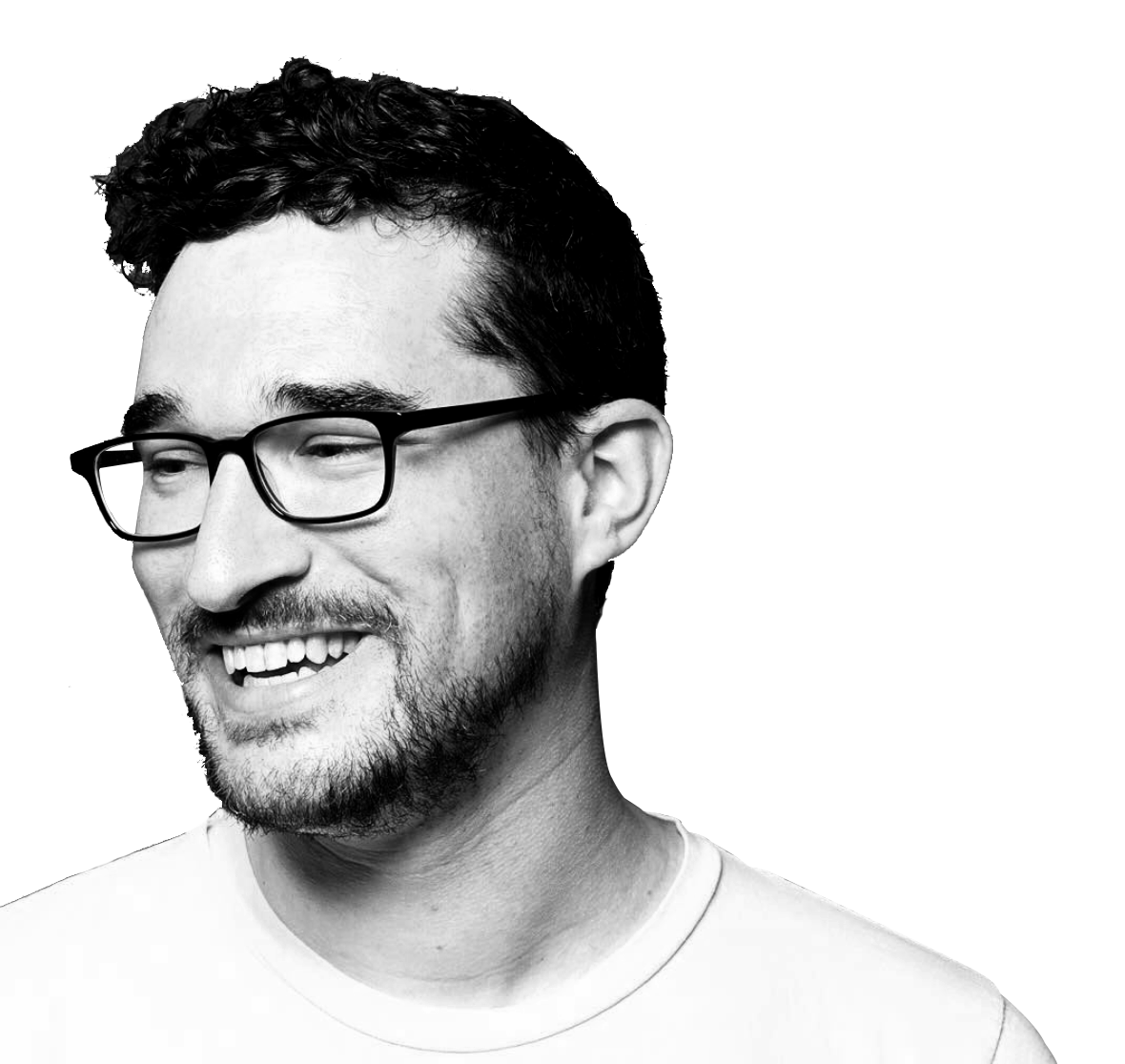
Eric Bailey Developer
Eric helped code this website. He’s an inclusive design advocate, writer, developer, and speaker. He helps maintain The A11Y Project, a community-driven effort to make digital accessibility easier. If you encountered an access barrier while using this site, please let him know.